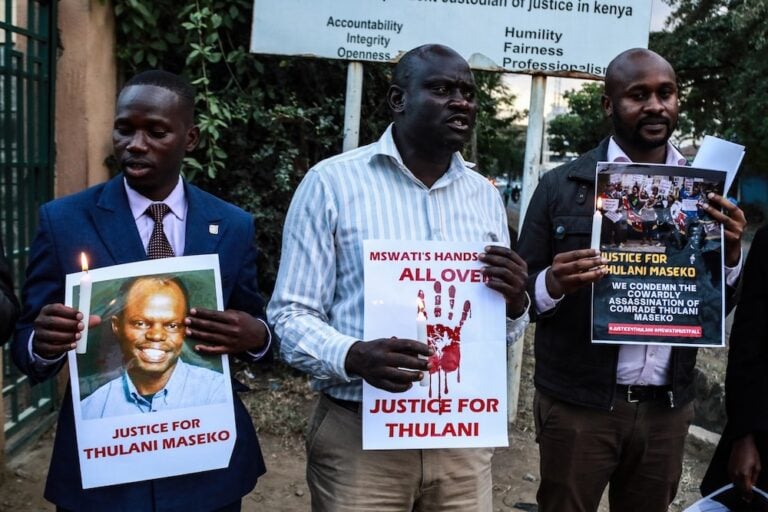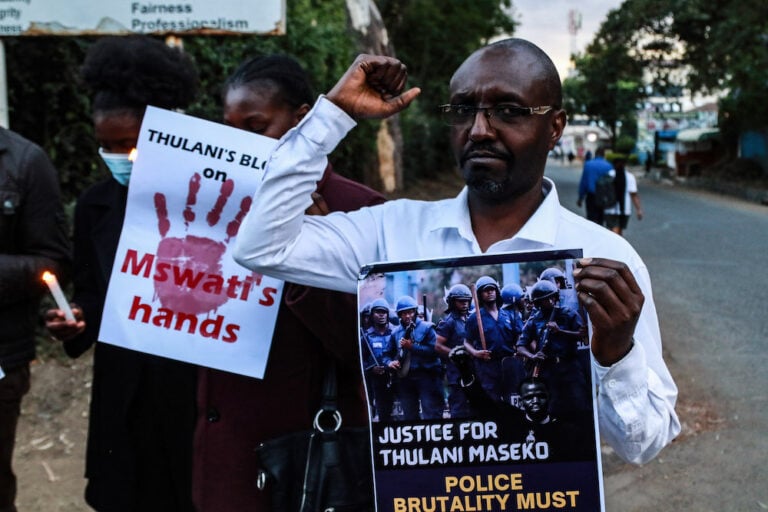The media self-regulatory framework was set up to deal with media complaints and to build a better relationship between the media and the public.
(MISA/IFEX) – June 10, 2011 – The Windhoek-based Regional Secretariat of the Media Institute of Southern Africa (MISA) welcomes the registration of the Swaziland Media Complaints Commission (MCC), a media self-regulatory framework, set up to deal with media complaints and to build a better relationship between the media and the public in Swaziland.
MISA applauds the Swazi government, especially the efforts of the Swazi Minister for Information, Communications and Technology, Nelisiwe Shongwe, who worked tirelessly with the media to ensure the speedy registration of the MCC. The Swazi government must further be applauded for its exceptional reasoning and for supporting a professional standard that will help to build a vibrant media that is ready to fight corruption and promote principles of good governance in that country.
The registration of the MCC marks the end of a 14-year struggle by the media in Swaziland to operationalise media self-regulation. Soon the MCC will be receiving and adjudicating on complaints from the public concerning the media.
The self-regulatory mechanism is founded upon the international doctrine of promoting an independent media system and building professional standards within the media fraternity. Both the 1991 Windhoek Declaration on the Promotion of an Independent and Pluralistic African Media as well as the 2002 Declaration of Principles of Freedom of Expression of the African Commission for Human and Peoples’ Rights, recognize self-regulation as the ideal form of regulation for media.
MISA is proud to note the unwavering stakeholder commitment from both the media and the Swazi government in finding common ground that led to the final registration of the commission on 7 July 2011. We are equally pleased to acknowledge the courage shown by stakeholders who refused to accept the former Bill that sought to pilot a statutory regulatory mechanism in that country. This spirit is founded upon the pillars of democracy, and it is good to note that all stakeholders involved held it aloft.
MISA calls upon the Swazi government, the public and the media to rally behind the MCC, and to help strengthen the process of building a democratic media that will not only promote transparency, but also one that values professional and ethical journalism.
We believe this process will help end the practice of self-censorship and halt criminal defamation lawsuits that impede the ability of the media to operate freely in that country. The MCC will discourage expensive court procedures and mechanisms, and allow for access to a complaints mechanism by the poor majority of Swazis who rarely are able to defend themselves in court in cases of defamation.
We further applaud the involvement of stakeholders, such as fesmedia Africa, who have continued to throw their unwavering support behind the process of establishing the MCC. MISA considers this development as the beginning of a new chapter in media development in Swaziland. We therefore urge the Minister and the Swazi government to continue rendering support to the MCC, and to continue in this spirit of positive policy development. MISA is of the view that the enactment of an Access to Information Law in Swaziland will facilitate access to information by all citizens and substantially improve the quality of life of the Swazi people.


